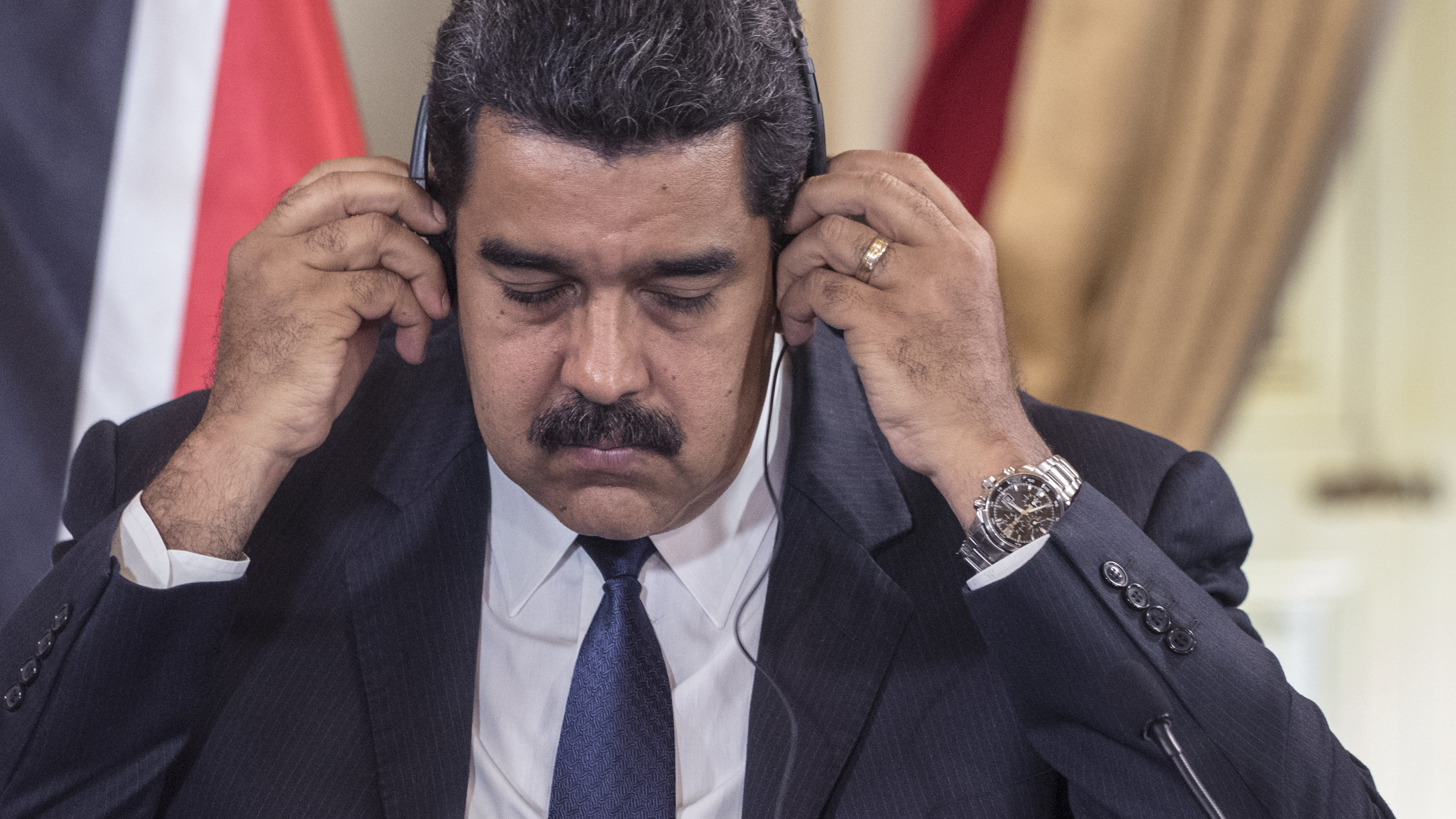UNSCR 2334 on Israeli Settlements
In the waning days of the Obama administration, the United States decided not to veto Security Council resolution 2334, which condemned Israeli settlements. While there is no denying the political and symbolic importance of the resolution, its direct legal and practical implications are limited—albeit not insignificant.
In the waning days of the Obama administration, the United States decided not to veto Security Council resolution 2334, which condemned Israeli settlements. While there is no denying the political and symbolic importance of the resolution, its direct legal and practical implications are limited—albeit not insignificant.
The draft resolution was originally put forward by Egypt. Israel, aided by President-elect Trump, had unsuccessfully tried to prevent its adoption over the past few days, pressuring Egypt into withdrawing the draft. However, Malaysia, New Zealand, Senegal and Venezuela eventually took over the effort and called a vote on Friday. Fourteen of the Council’s 15 members voted in favor of the resolution. The U.S. abstained.
The U.S. abstention is perceived in Israel as a departure from the U.S. diplomatic practice of blocking Israel-related measures at the U.N., even though previous U.S. presidents have allowed resolutions concerning the Israeli-Palestinian conflict to pass. The Obama administration had vetoed a similar measure condemning settlements back in 2011. Then-U.N. Ambassador Susan Rice said at the time that “while the United States agrees about ‘the folly and illegitimacy of continued Israeli settlement activity, we think it unwise for this Council to attempt to resolve the core issues that divide Israelis and Palestinians.’”
This time, U.N. Ambassador Samantha Power said that things have changed. She described the continuous expansion of Israeli settlements, the failed attempts to revive negotiations, and the recent statements from the Israeli leadership expressing its commitment to the settlement enterprise. According to Power, the U.S. abstention was in line with the longstanding U.S. position “that Israeli settlement activity in territories occupied in 1967 undermines Israel’s security, harms the viability of a negotiated two-state outcome, and erodes prospects for peace and stability in the region.” She added that “[t]oday, the Security Council reaffirmed its established consensus that settlements have no legal validity.” Power noted that one of the factors that encouraged the sponsors of the resolution to call for a vote now was the proposed settlement regularization law currently considered by the Israeli Knesset (see previous post). At the same time, Ambassador Power explained that the U.S. did not vote in favor of the resolution because it is too narrowly focused on settlements. She also condemned violence and incitement on the Palestinian side and criticized the U.N. for its double standard where it comes to Israel. Power made it clear that the U.S. remains committed to Israel’s security. (See also Deputy National Security Advisor Ben Rhodes’ statements explaining the U.S. decision in less diplomatic language).
In a separate statement, Secretary of State Kerry indicated that we will hear more from the U.S. on the Israeli-Palestinian issue in the coming days. He promised to share “more detailed thoughts, drawn from the experience of the last several years, on the way ahead."
Israeli Prime Minister Netanyahu’s office has already made it clear that Israel will not abide by the terms of the resolution, and that Israel looks forward to working with President-elect Trump to reverse it. And President-elect Trump tweeted: “As to the U.N., things will be different after Jan. 20.”
As to the U.N., things will be different after Jan. 20th.
— Donald J. Trump (@realDonaldTrump) December 23, 2016
The Elements of the Resolution
In its preamble, resolution 2334 reaffirms “the obligation of Israel, the occupying Power, to abide scrupulously by its legal obligations and responsibilities under the Fourth Geneva Convention,” and recalls the ICJ’s 2004 advisory opinion on the legal consequences of the construction of a Wall in the occupied Palestinian territory. The resolution then condemns the construction and expansion of settlements in the West Bank and East Jerusalem, as well as “confiscation of land, demolition of homes and displacement of Palestinian civilians” in violation of international law. It further expresses “grave concern” that Israeli settlement activities undermine the viability of a two state solution based on the 1967 lines, reiterates the Security Council’s commitment to the two state solution, and calls for immediate steps to reverse current trends on the ground. The preamble also condemns “all acts of violence against civilians, including acts of terror, as well as all acts of provocation, incitement and destruction,” and mentions the obligation of the Palestinian Authority to confront terrorism.
In the operative part of the resolution, the Council:
1. Reaffirms that the establishment by Israel of settlements in the Palestinian territory occupied since 1967, including East Jerusalem, has no legal validity and constitutes a flagrant violation under international law and a major obstacle to the achievement of the two-State solution and a just, lasting and comprehensive peace;
2. Reiterates its demand that Israel immediately and completely cease all settlement activities in the occupied Palestinian territory, including East Jerusalem, and that it fully respect all of its legal obligations in this regard;
3. Underlines that it will not recognize any changes to the 4 June 1967 lines, including with regard to Jerusalem, other than those agreed by the parties through negotiations;
[…]
5. Calls upon all States […] to distinguish, in their relevant dealings, between the territory of the State of Israel and the territories occupied since 1967;
6. Calls for immediate steps to prevent all acts of violence against civilians, including acts of terror, […]
7. Calls upon both parties to act on the basis of international law, including international humanitarian law, and their previous agreements and obligations, to observe calm and restraint, and to refrain from provocative actions, incitement and inflammatory rhetoric […]
8. Calls upon all parties to continue, in the interest of the promotion of peace and security, to exert collective efforts to launch credible negotiations on all final status issues in the Middle East peace process and within the time frame specified by the Quartet in its statement of 21 September 2010;
9. Urges in this regard the intensification and acceleration of international and regional diplomatic efforts and support aimed at achieving […] just and lasting peace in the Middle East on the basis of [previous resolutions and initiatives]
[…]
12. Requests the Secretary-General to report to the Council every three months on the implementation of the provisions of the present resolution;
The legal Significance of the Resolution
This post is not the place to address the political implications of the resolution and what had preceded it. From a purely legal perspective, it seems that the resolution adds little to previous Security Council resolutions on settlements. There are, however, nuances worth paying attention to.
First, the resolution adds yet more weight to the legal case against West Bank and East Jerusalem settlements under international law. (On the international law issues, see this recent debate here and here at Just Security). It unequivocally states that Israeli settlements in the West Bank and East Jerusalem have “no legal validity” under international law. It also demands an immediate cessation of all settlement activity.
To be sure, all of this is not new. The Security Council had previously used similar language regarding settlements, and had called on Israel to stop their expansion. For example, op. para 1 of Security Council resolution 446 (1979) similarly “Determines that the policy and practices of Israel in establishing settlements in the Palestinian and other Arab territories occupied since 1967 have no legal validity […].” Nevertheless, this is the first Security Council resolution since 1980 (resolution 465) that focuses on settlements. The fact that it reiterates the same old legal conclusions despite the major changes on the ground in light of the vast expansion of settlements over the past four decades is significant. The resolution makes clear once again the Security Council’s view that any deviation from the 1967 lines can only be agreed upon in final status negotiations between the parties. The Council permits no presumptions about the future of the large settlement blocs, which Israel has argued should remain under its control in any future agreement.
Second, the resolution does not invoke Chapter VII of the U.N. Charter, which governs the Security Council’s authority to take enforcement measures in response to a “threat to the peace, breach of the peace or acts of aggression.” Its operative paragraphs do not include binding language, for the most part using the non-binding “calls upon” formulation. Resolution 2334 therefore does not have immediate and direct implications in the form of sanctions or other measures with practical significance.
That said, the resolution provides a legal basis for possible concrete action on settlements in the future. Op. para. 5 calls on all States to distinguish between Israel proper and the territories. This new provision might legitimize and intensify existing efforts to promote sanctions against Israeli products originating in the West Bank and East Jerusalem, or boycott companies and institutions operating in those areas. But the extent to which op. para. 5 would translate into actual measures against Israel depends on political will. In addition, op. para. 12 of the resolution requests the U.N. Secretary General to periodically report on its implementation, creating a mechanism for keeping the issue alive at the Council, which might lead to further action. Finally, the resolution might encourage the ICC prosecutor, currently conducting a preliminary examination of Israel’s actions in the territories that encompasses settlements, to open a full fledged investigation (see here and here). The resolution does not provide the prosecutor with new legal arguments, but it might affect her decision-making.
In sum, while the resolution’s immediate practical significance is limited, it revitalizes the legal case against settlements under international law and provides a basis for states and organizations to act against Israeli settlements in the future—with or without U.S. participation. President-elect Trump’s objections to the resolution and threats by members of congress to defund the U.N. not withstanding, chances are that the resolution is here to stay. To reverse it, the Trump administration would need to push through a new resolution, which requires the support of the other members of the Security Council. That is not going to be easy.





